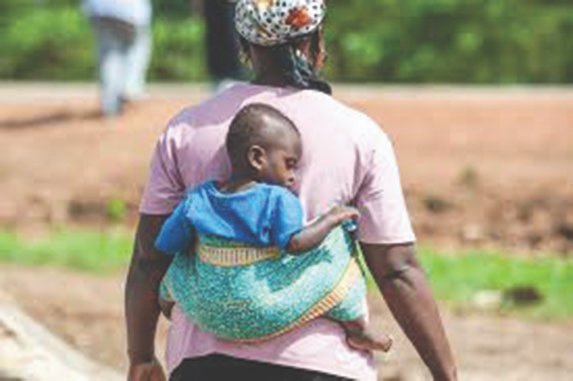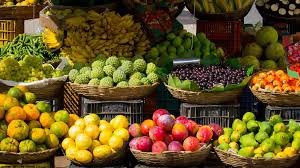Nutrition
Nutrition as smart economics: Why Ghana must invest in it
When national development is discussed, the spotlight often falls on roads, factories, employment, and technology. Yet, one of the most powerful engines of economic growth remains overlooked: nutrition. A well-nourished population is not just healthier, it is smarter, more productive, and better positioned to drive Ghana’s transformation.
The hidden cost of malnutrition
Malnutrition is not only a public health crisis; it is a silent drain on the economy. According to the Ghana Demographic and Health Survey (GDHS 2022), countries lose up to 3percent of GDP annually due to poor nutrition. For Ghana, this means billions of cedis lost every year through lower productivity, weaker educational outcomes, and soaring healthcare costs. Malnutrition robs the nation of its human capital; the very foundation of sustainable growth.
Nutrition: An investment, not an expense
The evidence is clear: nutrition delivers some of the highest returns on investment of any development intervention. Every cedi spent on nutrition generates multiple benefits:
Higher productivity: Healthy, well-fed workers contribute more to the economy.
Better education outcomes: Children who eat balanced diets learn faster and perform better in school.
Reduced healthcare costs: Preventing malnutrition lowers the burden of disease and reduces long-term treatment expenses.
In short, nutrition is not charity, it is smart economics. Ghana cannot afford to postpone action.
Why Ghana must act now
Ghana has already made bold commitments at the 2025 Nutrition for Growth (N4G) Summit, pledging to halve child stunting and reduce anemia in women. But without adequate financing and political will, these promises risk becoming empty words.
Nutrition interventions such as exclusive breastfeeding promotion, school feeding programmes, and micronutrient supplementation require sustained investment. Without dedicated budget lines and accountability measures, the cycle of malnutrition will continue to undermine development.
A call for leadership and accountability
Nutrition must be placed at the heart of Ghana’s development strategy. Policymakers, parliamentarians, and development partners need to treat nutrition with the same urgency as infrastructure or energy. Civil society organizations, the media, and citizens must also play their part by demanding accountability and ensuring that nutrition remains high on the national agenda.
The truth is simple: a nation cannot grow on an empty stomach. By investing in nutrition today, Ghana secures a healthier, wealthier, and more resilient future. A nourished Ghana is not just a healthier nation; it is a stronger, more prosperous one, ready to achieve its vision of inclusive growth.
Nutrition
The First 1,000 Days: Why Ghana’s investment in maternal and child nutrition matters for human capital development

From the start of pregnancy to a child’s second birthday, the first 1,000 days, represents the most important window for human development. Good nutrition shapes the foundation.
During this short window, the body and brain grow at a pace that will never be repeated. When nutrition is inadequate, the damage to physical growth and cognitive development is often permanent. No later investment in education or healthcare can fully reverse these losses. Ghana’s future workforce and economic progress depend on getting nutrition right during this critical period.
Science is clear. A baby’s brain develops rapidly during pregnancy and early childhood, forming the foundation for all future learning and health. Adequate nutrients during pregnancy support the formation of neural connections that underpin learning, memory, and emotional regulation. When pregnant women lack essential nutrients, their babies begin life at a disadvantage. When young children experience severe malnutrition, they miss critical growth periods that do not return.
Ghana faces serious challenges during this critical window. An estimated 68,517 children suffer from severe acute malnutrition. Between 37 and 63 percent of pregnant women are anemic, with iron deficiency particularly common in late pregnancy. These problems translate directly into diminished potential. Malnourished children perform worse in school, earn less as adults, and face higher risks of chronic diseases. The economic losses multiply across generations.
Research worldwide shows that nutrition investments during the first 1,000 days deliver exceptional returns. Well-nourished children learn better, perform better academically, and become more productive adults. Countries that invest in early nutrition experience faster economic growth through stronger, more productive workforces.
Ghana already has effective solutions. Multiple Micronutrient Supplements for pregnant women reduce the risk of low birth weight and preterm birth, while Ready-to-Use Therapeutic Food enables high recovery rates for children with severe acute malnutrition. Both are approved in Ghana’s health guidelines. The problem is not lack of knowledge but lack of access. Coverage remains limited because financing depends heavily on donor support rather than sustainable domestic systems.
Integrating these nutrition interventions into the National Health Insurance Scheme would help close this gap. With a large proportion of mothers and young children already enrolled, NHIS provides a platform for nationwide reach. Recent reforms to health financing further strengthen the case for prioritising essential nutrition services within the scheme.
Ghana’s development agenda emphasizes industrialisation, innovation, and economic transformation. Achieving these goals requires a workforce capable of learning, problem-solving, and sustained productivity. Human capital development, however, does not begin at universities or training centers. It begins before birth.
The first 1,000 days offer no second chances. Each year of delay means another group of children enter adulthood carrying preventable disadvantages. Investing in nutrition during this critical window is not only a health priority; it is a foundational investment in Ghana’s economic future.
Feature article by Womec, Media and Change under its Nourish Ghana: Advocating for Increased Leadership to Combat Malnutrition project
Join our WhatsApp Channel now!
https://whatsapp.com/channel/0029VbBElzjInlqHhl1aTU27

Nutrition
Importance of Fruits During Ramadan

Ramadan, the ninth month of the Islamic lunar (Hijri) calendar, is a period of fasting, reflection, and spiritual growth. A vital part of observing Ramadan is Iftar—the evening meal with which Muslims break their daily fast at sunset. Fruits play an essential role in Iftar, providing nutrition, hydration, and energy after long hours of fasting.
Here are some of the most recommended fruits to include in your Ramadan meals:
Dates
Dates are traditionally used to break the fast. They are rich in sugar, fibre, potassium, vitamins, and minerals, helping to restore energy quickly after fasting.
Watermelon
Watermelon is highly consumed for hydration, as it is composed mostly of water. It can be enjoyed in slices or blended into refreshing smoothies.
Bananas
Bananas are an excellent source of potassium, which helps maintain fluid balance and reduce thirst. They also provide natural energy to keep you going after fasting.
Apples
Apples are fibre-rich and nutritious, promoting heart health, aiding weight management, and improving digestion.
Cucumber
Cucumber is one of the best hydrating fruits, composed of water and fibre, which aids digestion while revitalising the body.
Pawpaw (Papaya)
Pawpaw is low in calories and sugar, rich in fibre, and promotes healthy digestion, hair, and skin. It is a nutritious addition to any Iftar meal.
Including a variety of these fruits during Ramadan not only helps replenish lost nutrients but also supports overall health, digestion, and hydration throughout the fasting period.
By Linda Abrefi Wadie
Join our WhatsApp Channel now!
https://whatsapp.com/channel/0029VbBElzjInlqHhl1aTU27







